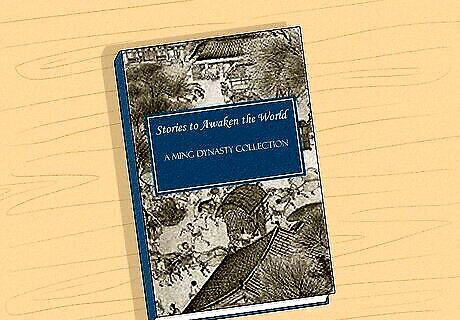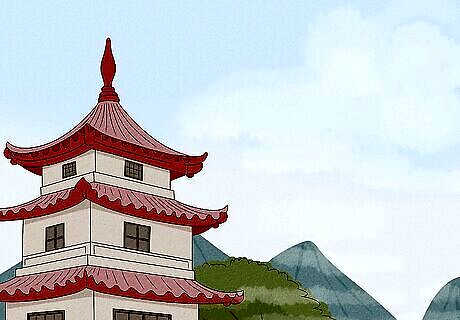
views
“May You Live in Interesting Times” Curse Meaning

“May you live in interesting times” means you hope someone experiences difficulty. It sounds innocent and positive, but the phrase is used ironically. “Interesting times” is a euphemism for unstable, troublesome, or chaotic experiences that you actually wouldn't want to live through. The expression implies that “uninteresting times” (peaceful or smooth experiences) are more pleasurable and life-enhancing. The expression is sometimes written as “May you live in an interesting age” or “May you live in exciting times.” It’s sometimes considered part of a curse trilogy, followed by “May you come to the attention of those in authority" and "May the gods give you everything you ask for.” The saying is a “curse” in the sense that you wish something bad or inconvenient on someone else. However, there is no ritual, magic, or spirituality connected to using it. The expression supposedly comes from a Chinese curse. However, its exact origins are unknown (more on that below).
“May You Live in Interesting Times” Origin

The phrase was recorded for the first time in 1936 by UK politicians. In a 1936 letter, Sir Austen Chamberlain (brother of former UK Prime Minister Neville Chamberlain) wrote, “Many years ago, I learned from one of our diplomats in China that one of the principal Chinese curses heaped upon an enemy is, ‘May you live in an interesting age.’” Chamberlain never traveled to China or spoke Chinese himself, but he was in contact with British diplomats in China as the British Foreign Secretary from 1924-1929. A similar account comes from Sir Hughe Knatchbull-Hugessen (a British ambassador to China) in his memoir Diplomat in Peace and War: “Before I left England for China in 1936, a friend told me that there exists a Chinese curse—‘May you live in interesting times.’ If so, our generation has certainly witnessed that curse’s [fulfillment].” The “diplomat” and “friend” are never identified by name, so it’s unknown who exactly told Chamberlain and Knatchbull-Hugessen about the curse. Chamberlain’s letter was referenced in a 1939 speech by its recipient, American politician Frederic R. Coudert. Since we don’t have the letter as a source, the earliest known reference to the curse is the 1939 speech.

Joseph Chamberlain may have come up with the exact wording. Sir Austen Chamberlain’s father Joseph, who was also a politician, used the phrase “We live in interesting times” in several speeches throughout 1898 to 1901. It’s likely that his son heard that phrase and incorporated it into his own vocabulary (intentionally or not), and some speculate that it was actually the Chamberlain family themselves that came up with the expression. The attribution to Chinese wisdom could have been accidental or a misremembered fact.

American politician Robert Kennedy popularized the saying in a 1966 speech. In his Day of Affirmation address at the University of Cape Town, RFK said, “There is a Chinese curse which says ‘May he live in interesting times.’ Like it or not we live in interesting times. They are times of danger and uncertainty; but they are also more open to the creative energy of men than any other time in history.” The speech drew parallels between the Civil Rights movement in the United States and the struggle against Apartheid in South Africa. RFK implied that turbulent or “interesting” times are often necessary to achieve equality and progress. The speech became known as the “Ripple of Hope” speech as it gained popularity worldwide. The speech also reinforced the idea that the expression is both Chinese and a curse—both of which are uncertain.
Is it actually a Chinese expression?

There is no equivalent expression in Chinese. Although the earliest reported users of the “curse” claim it’s Chinese, there are no records or evidence of it in Chinese literature. One theory suggests that the curse comes from a mistranslation or misunderstanding of a different Chinese proverb: “It’s better to be a dog in a peaceful time than to be a human in a chaotic period.” This proverb uses “chaotic” to mean “warring” (as opposed to peace time). It implies that it’s better to be an average person when there’s peace than a powerful or important person during times of war or violence. It comes from a short story collection called Stories to Awaken the World published during the Ming Dynasty in 1627. Although there are some parallels between the two expressions, there’s nothing very curse-like about the Chinese proverb. No one can say for sure whether they’re related. “May you live in interesting times” is known as an apocryphal curse, meaning its origins are doubted even though they’re widely accepted as true.

The “curse” may have been attributed to the Chinese for greater impact. In the late 19th and early 20th centuries, many Westerners viewed the Chinese as culturally and technologically inferior. Calling the expression a “curse” and claiming it came from ancient, proverbial China may have been a way to make it sound more exotic, mystical, and attention-getting. It also reinforced the idea that the Chinese were a superstitious people compared to rational, modern Westerners.
More Misattributed Quotes & Expressions
“Let them eat cake.” Marie Antoinette (the last Queen of France before the French Revolution) probably didn’t say this—and if she did, there was a misunderstanding. In 1767, Jean-Jacques Rousseau wrote “I recollected the thoughtless saying of a great princess, who, on being informed that the countrypeople had no bread, replied, ‘Then let them eat pastry!’” People assume the “great princess” was Marie Antoinette—but she was only 12 in 1767 and did not marry Louis XVI until 1770. The passage (“Qu'ils mangent de la brioche”) literally translates to “Let them eat brioche,” which is a sweet and crumbly pastry (but alas, not cake). The misinterpreted quote implies Marie Antoinette (or whoever may have said it) is a callous ruler, but it’s possible it’s meant to mean that the wealthy should stop hoarding access to food.
“The ends justify the means.” If you think the Renaissance-era philosopher Niccolo Machiavelli was the first to say this, you’d be wrong (but not alone). The phrase actually comes from the Roman Poet Ovid, who wrote “Exitus acta probat” (“the outcome justifies the means”). When Machiavelli wrote a similar sentiment in The Prince, he was implying that the people will always consider a prince’s intentions as just and praise him for them. Since The Prince was dedicated to the Medici family—who arrested and tortured Machiavelli later—he may have meant it satirically.
“Insanity is doing the same thing over and over again and expecting different results.” This quote appears all over and is attributed to Albert Einstein. However, it actually comes from a literary genius (and not a physics one). Mystery novelist Rita Mae Brown attributes the quote to a fictional character in her 1983 book Sudden Death: “Unfortunately, Susan didn’t remember what Jane Fulton once said. ‘Insanity is doing the same thing over and over again, but expecting different results.’”
“Be the change you wish to see in the world.” This expression is practically a cliché these days and is attributed to Indian lawyer and activist Mahatma Gandhi. However, there’s no record of him actually saying this, and it’s not known who did. The closest thing Gandhi said to this was in a 1913 newspaper article: “We but mirror the world. All the tendencies present in the outer world are to be found in the world of our body. If we could change ourselves, the tendencies in the world would also change.”
“Whatever you are, be a good one.” This saying wasn’t attributed to former US President Abraham Lincoln until 80 years after his death—and it’s likely Abe never said it. In Laurence Hutton’s 1897 memoir, he wrote about a meeting with William Makepeace Thackeray, who supposedly once told Hutton “Whatever you are, try to be a good one.” However, this updated attribution depends entirely on Hutton’s memory, so it’s possible somebody else used this expression first.















Comments
0 comment